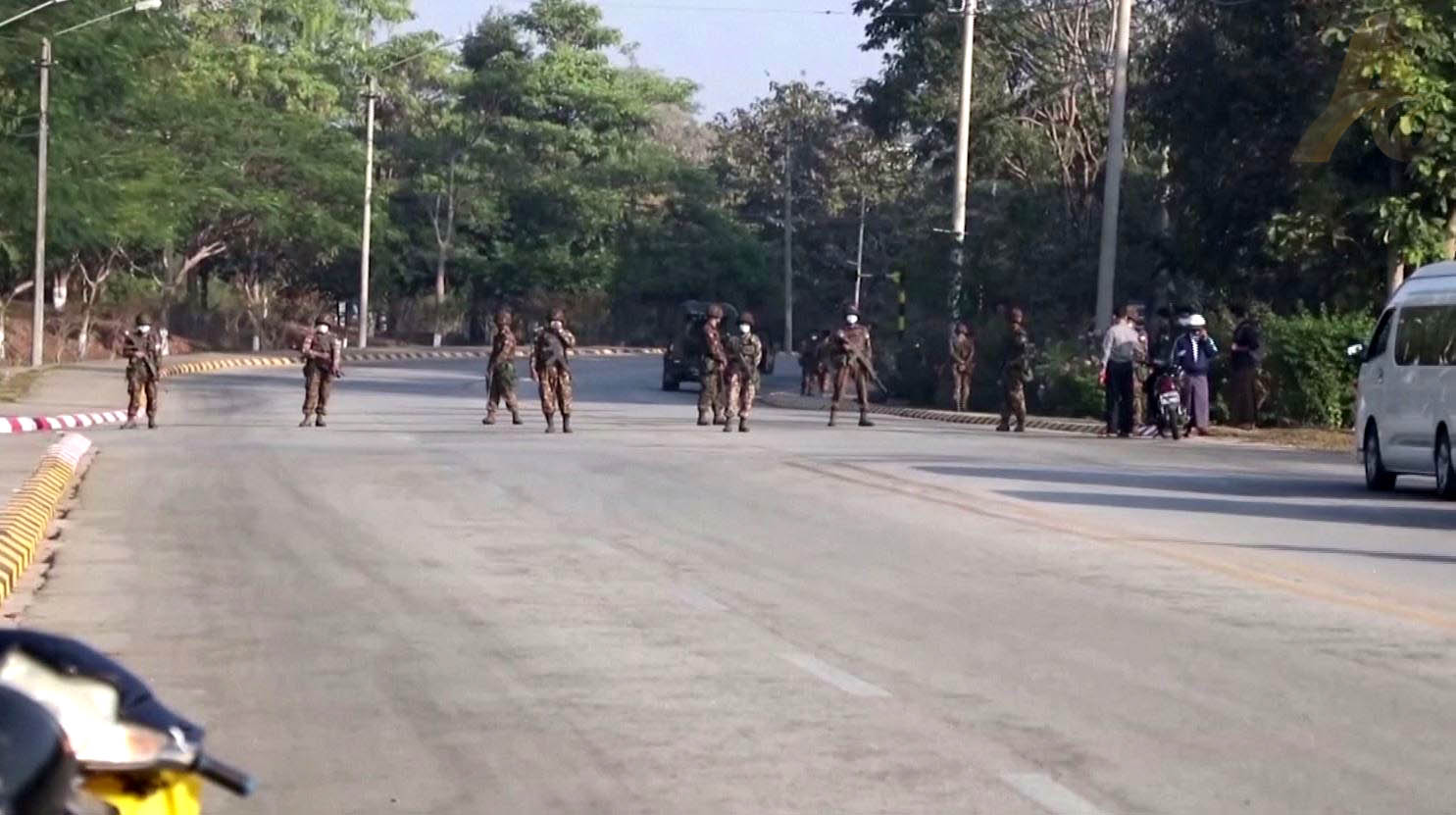INTERNATIONAL: February 1 marks a year since the military seized control of Myanmar.The military detains 76-year-old Aung San Suu Kyi and other members of the National League for Democracy, which had been reelected in a landslide election in November 2020.
A state of emergency is declared and army chief Min Aung Hlaing takes control.The move has prompted widespread anger in a country, which had been making a gradual, if sometimes stuttering shift, towards democracy.
Since seizing power on February 1, 2021, the military regime has used force against the opposition to its rule and failed to secure diplomatic recognition.
Myanmar has been in turmoil since the coup against Suu Kyi's democratically elected government led to widespread protests and signaled the end of 10 years of tentative political reforms that followed decades of strict military rule.
Protests have emerged within days, alongside a mass disobedience movement. Mass civil disobedience is declared with government workers, including teachers and doctors, walking off the job.
The police announce the first charges against Aung San Suu Kyi – the illegal use of walkie talkies, two days after the coup.
In March, 2021, troops kill at least 160 people as the military holds a traditional parade to mark Armed Forces Day. About 3,000 villagers from eastern Karen State flee into Thailand after the army launches air attacks on territory controlled by the Karen National Union armed group.
On April 1, Aung San Suu Kyi is charged with offences under the colonial-era official secrets law. It was also in April that politicians were forced out of office by the military announce they have formed a National Unity Government and Min Aung Hlaing travels to Jakarta for a summit with Southeast Asian leaders. The armed forces chief signs a five-point plan to end the violence and seek a solution to the political crisis.
Min Aung Hlaing appoints himself prime minister in the military’s State Administration Council. He repeats a pledge to hold elections by 2023.
Myanmar charges Aung San Suu Kyi and 15 others with “electoral fraud and lawless actions” over the November 2020 elections.
A closed court finds elected leader Aung San Suu Kyi guilty of charges of incitement and breaching coronavirus restrictions in the first verdict in a dozen cases brought against the Nobel Prize winner. She is sentenced to four years detention at an undisclosed location, but the sentence is later reduced after state TV announces Min Aung Hlaing has given her a “pardon”.
The UN accuses the military of killing dozens of civilians in eastern Myanmar after raiding a village on Christmas Eve.
January 7, 2022, the military rolls out the red carpet for Cambodia’s Prime Minister Hun Sen as he becomes the first foreign leader to visit Myanmar.
Aung San Suu Kyi is given an extra four years detention after being found guilty of charges including the possession of unlicensed walkie-talkies.
The military has responded with characteristic force and nearly 1,500 people have now been killed in the crackdown, according to the Assistance Association for Political Prisoners, a non-profit that has been tracking the unrest.
Frustrated with the lack of progress, some people have taken up arms, and the National Unity Government, has established by elected lawmakers and pro-democracy groups, has set up the People’s Defence Force.
A year since the coup and with little sign of international consensus to restore the civilian government, the situation looks increasingly precarious.






















